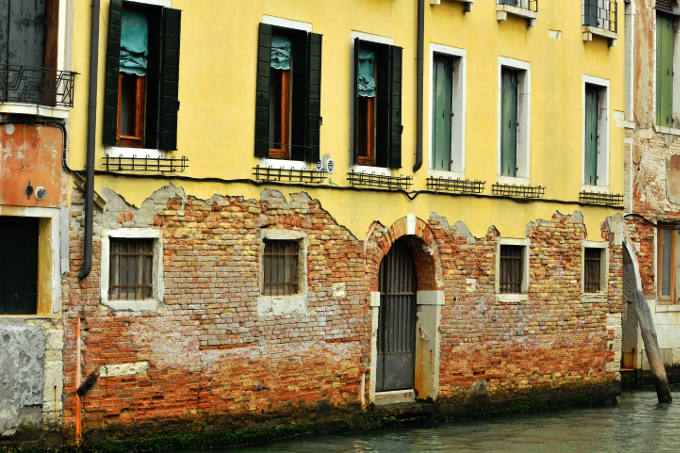
A large number of homes – particularly older ones – are affected by damp in some way. Damp problems are usually filtered into three categories; penetrative damp, condensation and rising damp.
Rising damp describes ground moisture seeping upwards through a building, and its existence is hotly contested. Critics will often argue that this phenomenon simply isn’t possible, but rising damp has been observed for over 200 years, and several studies have shown that water is perfectly capable of climbing through porous masonry, such as bricks and mortar.
The real myth is that an injectable damp proof course (DPC) is the best solution for treating rising damp in an old building. This idea gets perpetuated when damp is identified within a property, and the report suggests that a “damp proof specialist” is called for a second opinion. Unfortunately, these experts are usually employed by a company which installs injectable DPCs, so their recommendations are not as impartial as one might hope. In actual fact, installing a new DPC can exacerbate more problems than it solves.
Instead, the source of the damp should be identified and managed appropriately. A common cause is external landscaping acting as a moisture bridge across the damp proof course. Culprits are usually lawn banks, long grass or high-level paving where rain may be bouncing off and penetrating the walls. Adjust, trim or relocate any offending features, and consider installing a gravel trench around the perimeter of your external walls so that rain is absorbed into the ground, rather than deflected onto the building.
In other cases, a fault in the lower areas of the wall might be to blame, such as a crack in render or masonry. The majority of properties “breathe” to some degree, so check that any air bricks or vents are clear from both sides, and take steps to improve the general ventilation indoors. As long as damp is not causing significant damage to masonry or timberwork, it can be easily managed and should not have too much bearing on your decision to proceed with the purchase.
Contact Us
Are you about to buy a property without having a survey? Do you have concerns about damp in your current home? Contact our team today to discuss your requirements and book an appointment with an experienced qualified surveyor.